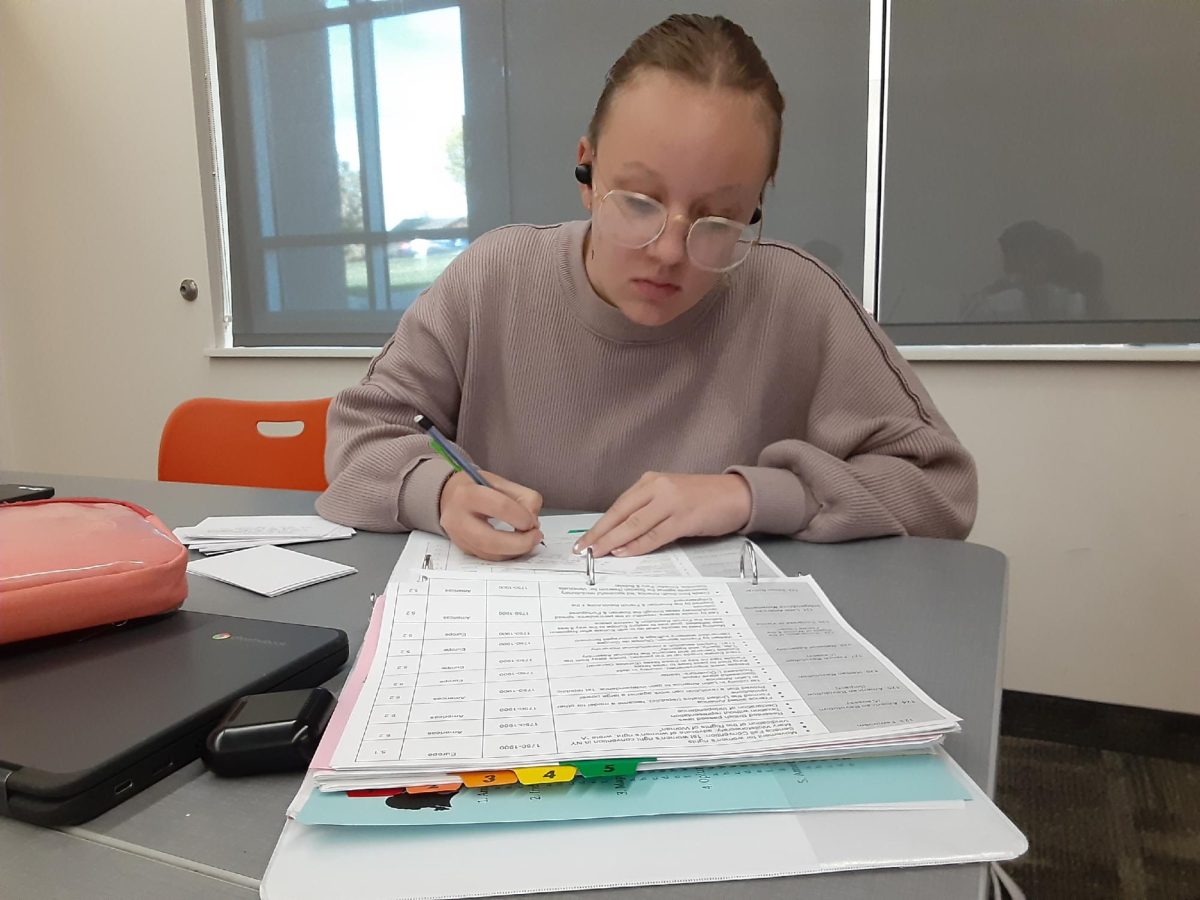Every day, teenagers anxiously wait for school to let out. The bell rings, and students head home. However, school is never truly over for them. This raises a question that many have had for years: Are teachers assigning their students too much homework?
“It depends on the student, but I feel like I have too much homework. I’m already in school for most of my teen life, so I don’t understand why they expect me to do even more,” said sophomore Emma Bradford when asked her opinion on homework.
Junior Ridge Chamber expressed similar feelings. “I think some homework is fine, but the majority should be done in class.”
Cassidy Baker, a teacher at Timpview, shared her perspective. “Studies show that repeating and practicing learning concepts outside of class can improve retention. In my class, homework is required because there’s so much to cover for the AP test, and there’s never enough time to get it all done in class.”
Although Ms. Baker sees homework as beneficial, Bradford feels that this extra work interferes with her personal life. “I’m involved in an extracurricular activity, and I don’t really have time to do things because of it. I’m even failing some classes because homework counts for such a big percent of my grade.”
Homework doesn’t just affect teenagers’ personal lives; it also impacts their mental health.
“It’s always in the back of your mind; you’re always trying to make time for it, worrying about upcoming homework,” Chamber also shared, expressing how homework has impacted him. Bradford voiced similar concerns. “I get overwhelmed at least once every week. It’s like a looming threat if you don’t get everything done.”
As homework continues to be a major part of the education system, the question still lingers: How much is too much? Homework levels don’t appear to be dropping anytime soon, so finding a healthy balance between academics and personal life may be key to reducing stress and helping students make time for other commitments.

















